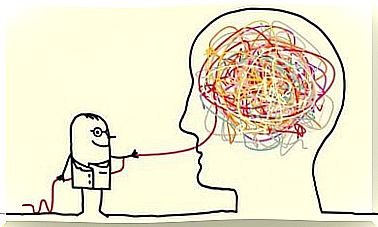Change A Habit In 6 Steps

Changing a habit is a challenge. Especially if it is rooted in us. On the other hand, looking in the mirror, we are all able to identify a habit that we would like to change. The end of the year comes and we aim to start doing or stop doing something. In the beginning we start well, but after a short time we return to the old habits.
The good news is that there are some effective ways to change a habit . Sometimes what is missing is not the will, but the strategy. Obviously it takes effort and perseverance, but without an adequate method it is much more difficult to succeed.
Cognitive, emotional and voluntary aspects come into play. The decision is only a necessary precedent, but not a sufficient one. Starting from the analysis of human conduct, it has been established that the purpose of changing a habit passes through six stages. We list them below.
The steps required to change a habit
1. Premeditation
Changing a habit starts with the clues whispering in your ear. A voice, almost always faint, says that there is an unhealthy or positive habit in our life. Sometimes it is others who understand it, sometimes it is ourselves. The point is that at some point, the idea appears that perhaps there is a conduct that we should eliminate.

At the same time there is a denial of the facts. Resistance is sometimes very strong. We look for reasons to keep this habit or we underestimate those that invite us to change it. As human beings, we have a tendency to keep everything the same and the idea of a big change doesn’t excite us at first.
2. Contemplation
This is the longest step in the process of changing a habit. It lasts for months, years or a lifetime. It begins when a person realizes that there is actually a habit in his life that has a negative effect and that he needs to change it.
It is also the phase in which sometimes you decide to change and make the first efforts to succeed. There is no more denial. However, there may be a lack of motivation or difficulty in finding the way to change.
3. Preparation
Preparation is the stage where efforts are made to change. It is the moment of exploration, of failed and not very constant attempts, which in the end perhaps do not consolidate.

In this stage the person discovers how difficult it is to change a habit. The awareness of the need for change persists and the first obstacles are identified to succeed. It is a necessary step, but in any case it represents progress.
4. Realization
This phase is characterized by conscious, direct and continuous efforts to achieve change. A strategy is formulated to succeed in achieving the goal, often motivated by the advice of others or by information received. There are visible results, even if it is not necessarily a radical change.
Many times consolidation fails because the previous steps were not completed correctly. There are those who want to start the process by realizing a result, which is extremely difficult and almost always leads to failure. In any case, perfectly visible and clear results are obtained in this stage.
5. Maintenance
As the name indicates, the new habit is maintained at this stage. After abandoning the previous habit and adopting a new one, the goal is to keep it over time and naturally include it in your daily life. There is more security and trust.

However, in order for the new conduct to be maintained over time, new strengthening habits must be acquired. For example, if the ultimate goal is to quit smoking, we could accompany this new habit with some physical activity. Another very important aspect is to stay motivated and reward yourself frequently for the results obtained.
6. Relapse
Relapses are a normal part of the process of changing a habit. The human mind is not linear, it works through ascending or descending curves. Nonetheless, a relapse does not bring the person back to the beginning of the process, even if it is very strong. All the way you have traveled helps you start over at a much faster pace. The best thing would be to resume the process from the preparation phase.
It is also very important not to punish yourself. On the contrary, it is good to encourage yourself, motivate yourself and not allow doubt or lack of trust to take over your mood. We must always examine the cause of the relapse and identify the risk factors.

Changing a habit isn’t easy, but when we do, we increase our feelings of self-worth, optimism, and confidence in our abilities. Then, of course, we improve our quality of life and eliminate potentially harmful factors for us.








